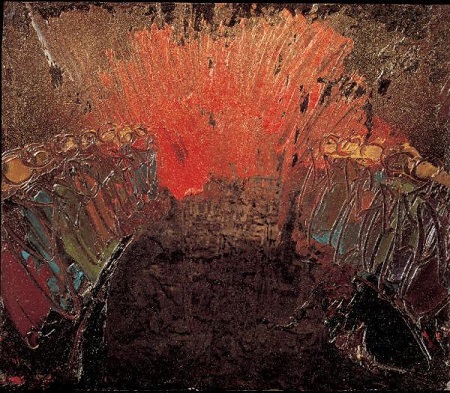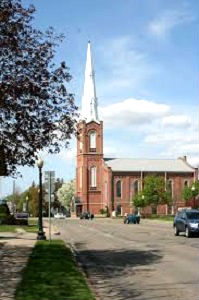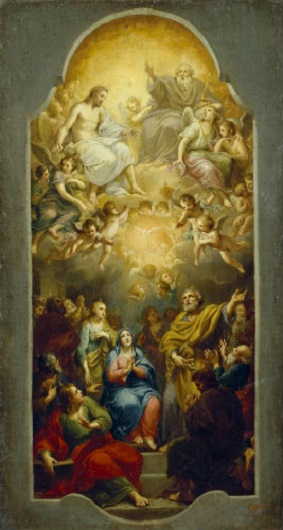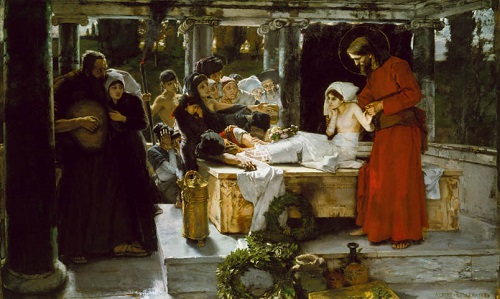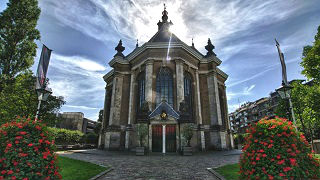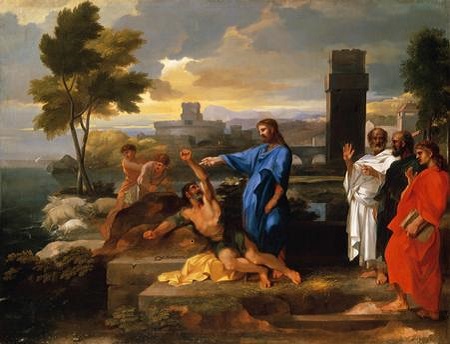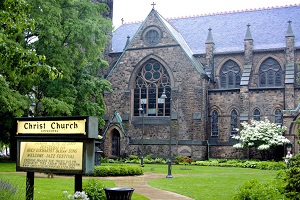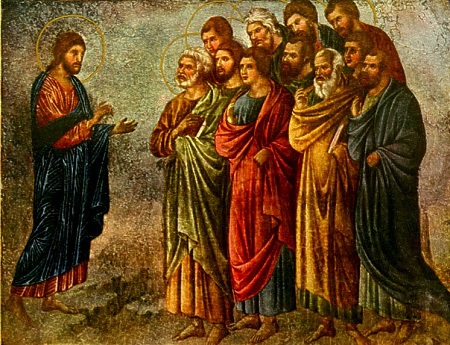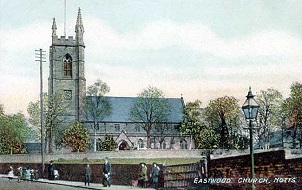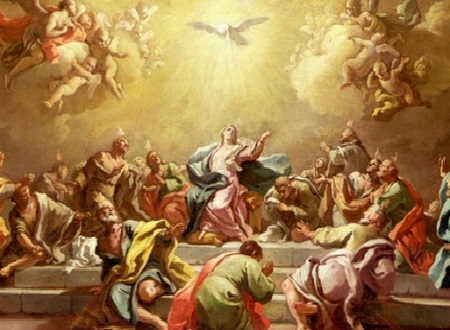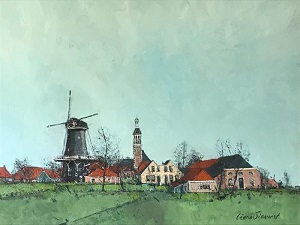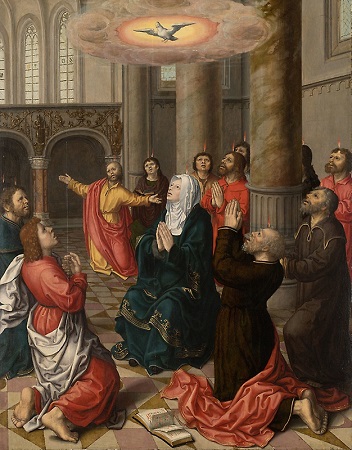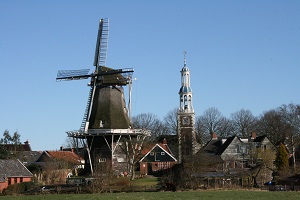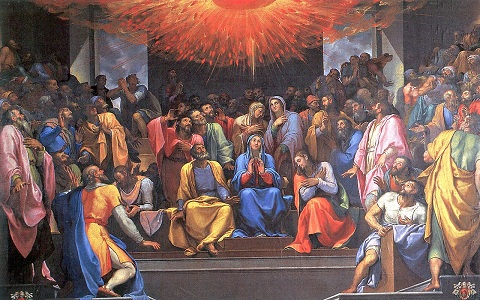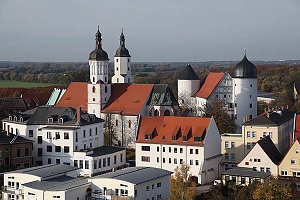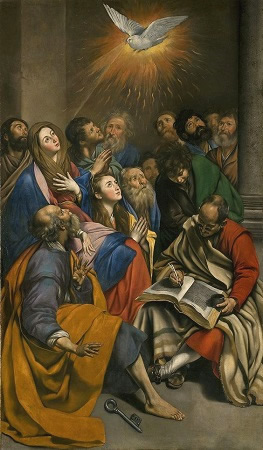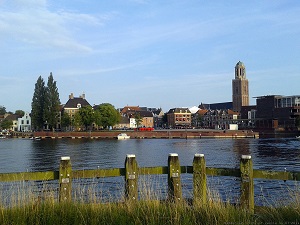Prettige Pinksterdagen!

Veni Creator
Come, Holy Spirit,
bending or not bending the grasses,
appearing or not above our heads in a tongue of flame,
at hay harvest or when they plough in the orchards or when snow
covers crippled firs in the Sierra Nevada.
I am only a man: I need visible signs.
I tire easily, building the stairway of abstraction.
Many a time I asked, you know it well, that the statue in church
lifts its hand, only once, just once, for me.
But I understand that signs must be human,
therefore call one man, anywhere on earth,
not me—after all I have some decency—
and allow me, when I look at him, to marvel at you.
Vertaald door Czeslaw Milosz en Robert Pinsky

Geboortehuis – museum Czeslaw Milosz in Šateniai
De Amerikaanse dichter Walt Whitman werd geboren op 31 mei 1819 in Westhills, Long Island, New York. Zie ook alle tags voor Whalt Whitman op dit blog.
Te denken aan tijd
4
Koude golfslag bij de kaai van het veer,
Sneeuw en ijs in de rivier… half bevroren modder in de straten,
Een grijze ontmoedigde hemel… het korte laatste daglicht van december,
Een lijkwagen en koetsen… andere voertuigen laten voorgaan,
De begrafenis van een oude koetsier… de stoet voornamelijk koetsiers.
Snel de stappen naar het kerkhof,
Plichtsgetrouw slaat de doodsklok… de poort wordt gepasseerd… bij
het graf wordt stilgestaan… de levenden stappen uit… de lijkwagen wordt geopend,
De kist wordt uitgeladen en neergezet… de zweep wordt op de kist gelegd,
De aarde wordt vlug in de kuil geschept… een minuut… niemand beweegt of spreekt… het is klaar,
Hij is keurig weggedaan… is er meer?
Hij was een goede vent,
Vrijpostig, opvliegend, niet onknap, opgewassen tegen het leven,
Geestig, je kon beter niet met hem dollen, hij zou zijn leven geven voor een vriend,
Gek op vrouwen, … gokte af en toe… at met smaak en dronk met smaak,
Heeft geleerd wat het was om te verkwisten… verloor moed tegen het einde… werd ziek… werd geholpen door een bijdrage,
Stierf op eenenveertigjarige leeftijd… en dat was zijn begrafenis.
Duim gestrekt of vinger opgetild,
Boezelaar, cape, handschoenen, riem… regenkleding… zweep met zorg gekozen… baas, uitkijk, starter, en knecht,
Iemand die bij jou de kantjes ervan afloopt of jij die bij iemand de kantjes ervan afloopt… vooruitgang… man van voren en man van achteren,
Een goede of een slechte werkdag… lievelingsmaterieel of slecht materieel… als eerste naar buiten of als laatste naar buiten… ’s nachts naar bed,
Te denken dat dit alles zo veel is en zo weinig voor andere koetsiers… en hij daar stelt geen belang in hen.
5
De markten, de regering, het loon van de werkers… te denken welk belang wij eraan hechten in onze dagen en nachten;
Te denken dat andere werkers er even groot belang aan zullen hechten… en wij zullen er klein of geen belang aan hechten.
Vulgair en verfijnd… wat je zonde noemt en wat je goedheid noemt… te denken hoe groot het verschil;
Te denken dat het verschil zal blijven bestaan voor anderen, maar wij liggen voorbij het verschil.
Te denken hoeveel plezier er is!
Beleef je plezier aan het kijken naar de lucht? Beleef je plezier aan gedichten?
Heb je het naar je zin in de stad? of in zaken? of bij het plannen van een nominatie en een verkiezing of met je vrouw en gezin?
Of met je moeder en zussen? of in het huishouden? of in de mooie moederlijke zorgen?
Die dingen vloeien over op anderen… jij en ik vloeien verder;
Maar op den duur zullen jij en ik er minder belang in stellen.
Je boerderij en winst en oogst… te denken hoezeer je in beslag genomen bent;
Te denken dat er nog steeds boerderijen en winst en oogst zullen zijn… maar van welk nut voor jou?
Vertaald door Ilja Leonard Pfeijffer

Zie voor nog meer schrijvers van de 31e mei ook mijn blog van 31 mei 2019 en ook mijn blog van 31 mei 2017 en ook mijn blog van 31 mei 2015 deel 2.

